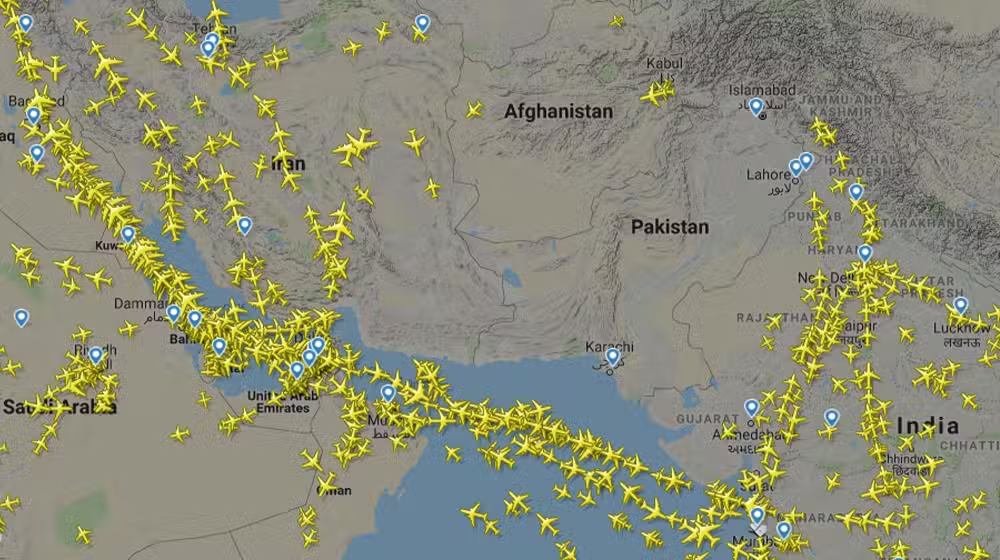Indian airlines are projected to suffer monthly losses up to $500 million following Pakistan’s sudden closure of its airspace to Indian-registered, operated, or leased aircraft. The sweeping restriction, enacted after a high-level meeting of Pakistan’s National Security Committee (NSC), has sent shockwaves through India’s aviation industry.
With more than 200 to 300 Indian flights using Pakistani airspace daily, including over 70 international round-trips, the impact has been both swift and significant.
The ban applies to all types of Indian aircraft, including commercial and military, and it has forced complex rerouting, increased fuel consumption, and extended flight times, placing immense pressure on airline logistics and profitability.
Escalating Fuel and Crew Costs
Long-haul flights, which previously enjoyed shorter transits via Pakistani airspace, now require diversions adding up to two hours per leg. This includes crucial routes connecting India to North America, Europe, and the Middle East.
- Air India’s AI-190 from Toronto was diverted to Copenhagen for refueling.
- A Paris-Delhi flight had to land in Abu Dhabi to refuel.
- AI-162 from London to India also had to make an unscheduled fuel stop.
- A Sharjah-Amritsar flight rerouted over Turbat.
- Another Indian flight had to land in Ahmedabad after facing fuel issues over the Gulf of Oman.
With reroutes demanding longer flying hours, Indian carriers face a steep increase in jet fuel consumption—one of their largest operational expenses. Add to this the increased crew duty hours, which require additional manpower, hotel stays, and rest periods, and the result is a cascading financial burden.
Airlines like IndiGo, SpiceJet, Air India Express, and Akasa Air—which rely heavily on lean margins—are expected to feel the brunt more intensely than their larger international counterparts.
This is not the first time Indian carriers are facing such disruption. In 2019, Pakistan closed its airspace for nearly five months following the Pulwama terror attack. Indian airlines reportedly incurred extra operational costs of over INR 700 crore during that period.
50 Flights Affected on First Day Alone
According to aviation analysts, on the very first day of the ban, at least 50 Indian flights were either delayed, rerouted, or disrupted, showcasing the widespread and immediate impact of the decision.
Facing rising costs and a turbulent geopolitical environment, Indian airlines are calling for government intervention. They are requesting fuel subsidies, route compensation, and diplomatic efforts to resolve the standoff.
The move came days after India blamed Pakistan for a terrorist attack on tourists in Indian-administered Kashmir, an accusation that Pakistan strongly denied, labeling it baseless and politically motivated.
- Suspended special visa arrangements
- Closed the Wagah border
- Expelled each other’s defense officials
- Reduced diplomatic staffing at embassies
- Suspended cooperation under the Indus Water Treaty
These actions mark a serious deterioration in bilateral ties, with significant implications not only for diplomatic channels but also for cross-border connectivity and trade.
Air Cargo and Trade Also Under Pressure
It’s not just passenger flights that are suffering. Air cargo routes, crucial for the transportation of perishable goods, pharmaceuticals, and high-value electronics, are being disrupted.
Exporters have expressed concern over missed deadlines, spoiled goods, and penalties imposed by international buyers.
One of the most troubling aspects of the airspace ban is its indefinite nature. Neither Pakistan nor India has provided a timeline for resolution, and as military and political rhetoric intensifies, aviation stakeholders fear a prolonged standoff.
Projections suggest that continued closure over the next six months could cause cumulative damages surpassing $3 billion, threatening the financial viability of Indian carriers, particularly those with thin cash reserves.
The Indian aviation sector stands at a critical juncture. As the government grapples with rising diplomatic stakes, airlines must brace for sustained turbulence.
- Layoffs or salary cuts
- Airfare hikes
- Reduced international frequencies
- Delayed aircraft orders


